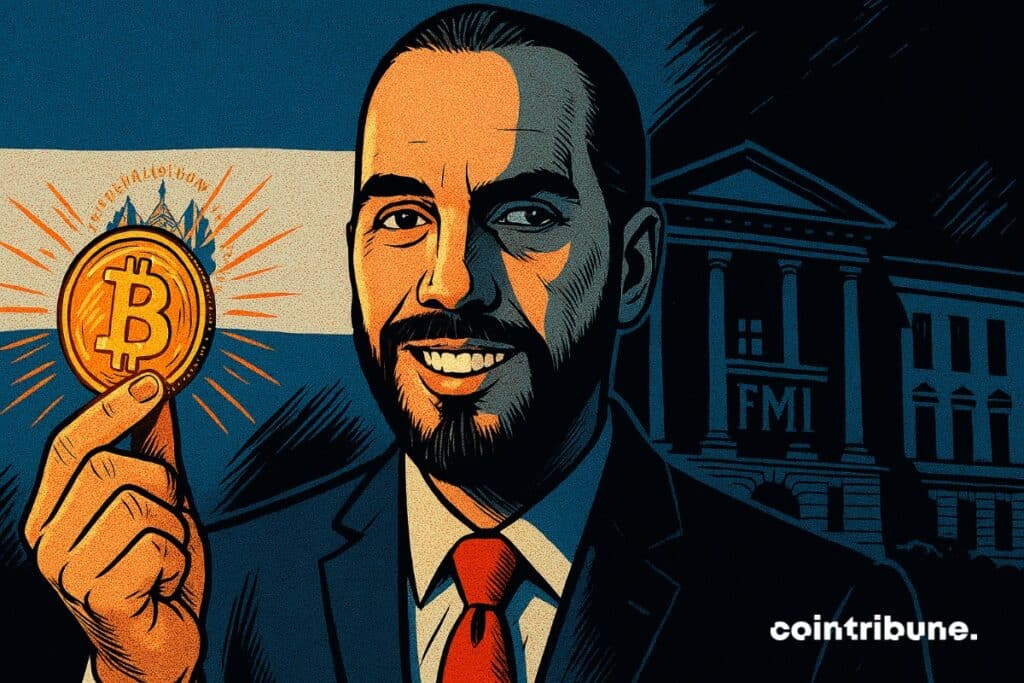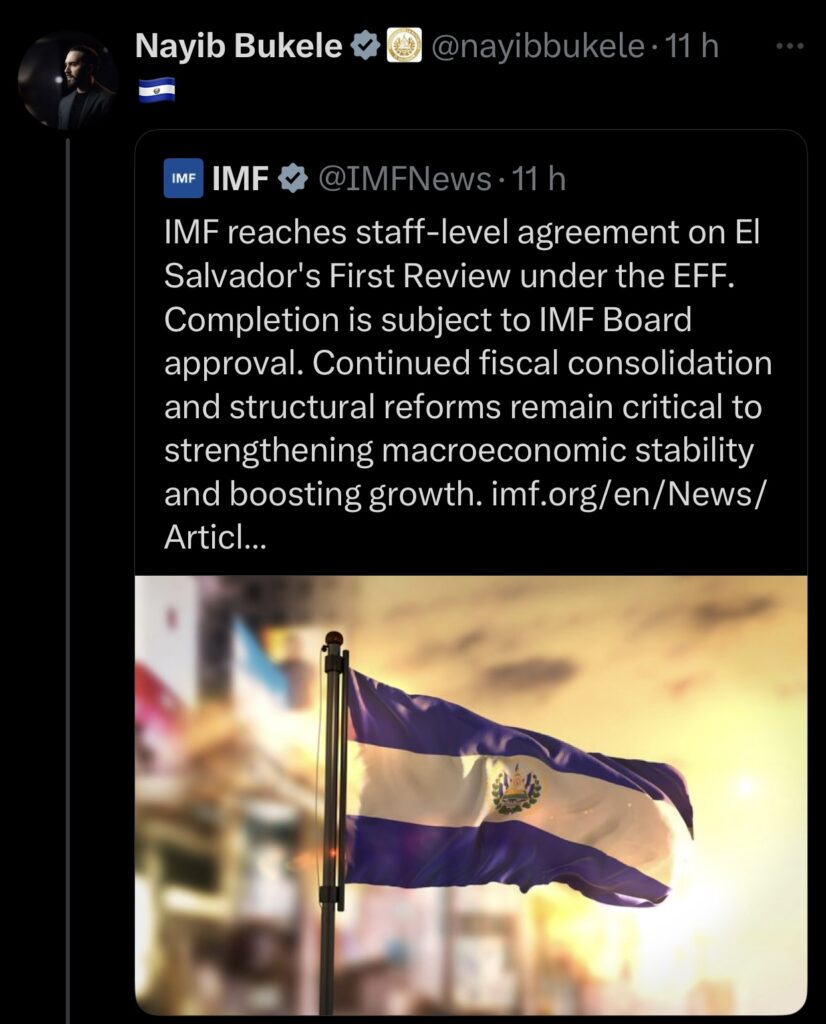Bitcoin: No Accumulation For El Salvador, According To The IMF
The International Monetary Fund confirms that El Salvador’s bitcoin holdings remain stable, reassuring the markets. However, President Bukele’s lack of clarity on his crypto strategy leaves doubt lingering. Between financial commitment and digital ambitions, what future for Salvadoran bitcoin?

In Brief
- The IMF confirms that El Salvador’s bitcoin holdings have remained stable, validating the official data.
- Nayib Bukele remains ambiguous, posting a message without specifying whether he will continue accumulating bitcoins.
- This situation creates tension between IMF requirements and El Salvador’s crypto ambitions, maintaining uncertainty.
The IMF Confirms That El Salvador’s Bitcoin Reserves Remain Stable
In its report published on May 27, 2025, the International Monetary Fund (IMF) states that El Salvador’s bitcoin holdings “remain unchanged“. This statement comes as part of the first review of the 40-month financing program. The IMF recognizes the country’s budgetary efforts while stressing the need to limit exposure to cryptos.
This stability of BTC reserves is therefore a key point in justifying the release of a new $120 million tranche. At first glance, all sources converge.
- The official IMF report notes no increase in bitcoin holdings;
- The official site bitcoin.gob.sv, managed by Salvadoran authorities, also reflects this stability.
Thus, a technical consensus emerges: despite past political announcements, El Salvador has not recently increased its bitcoin reserve.
Nayib Bukele Remains Silent: What Contradictions Surround BTC?
But a silence intrigues. After the IMF report stating that El Salvador’s bitcoin holdings remain unchanged, Nayib Bukele posted an enigmatic tweet with no comment on the substance.

An unusual posture for a president who, until now, proudly claimed purchasing bitcoin daily. Even more surprising: the IMF explicitly writes in its report that it will ensure El Salvador “adds no more bitcoins to its holdings“. A clear statement that directly contradicts Bukele’s repeated promises to accumulate more BTC.
This gap fuels a form of silent tension. On one side, a populist president who built his international reputation on Bitcoin policy boldness. On the other, a multilateral institution demanding rigor, caution, and a gradual disengagement of the state from cryptocurrencies. For now, the balance of power seems frozen. But how long can this ambivalent stance last?
El Salvador’s Bitcoin Strategy: What the Current Situation Reveals
Beyond the numbers, this episode reveals a change in tone. El Salvador seems to suspend its bitcoin accumulation momentum to preserve IMF financial support, which emphasizes that:
Substantial progress continues on an ambitious agenda of governance, transparency, and financial resilience.
However, Nayib Bukele has not explicitly given up on this strategy, leaving open the possibility of a resumption. This ambiguity maintains pressure on markets and observers. El Salvador stands at a crossroads: to pursue a clear policy or risk its stability by restarting aggressive bitcoin accumulation.
The IMF confirms the stability of El Salvador’s bitcoin holdings. Yet in practice, Nayib Bukele’s country continues accumulating BTC, contradicting the official stance. This gap fuels lasting tension between budget discipline and crypto strategy. How far can a state go into cryptocurrencies without shaking its economic sovereignty?
Maximize your Cointribune experience with our "Read to Earn" program! For every article you read, earn points and access exclusive rewards. Sign up now and start earning benefits.
The world is evolving and adaptation is the best weapon to survive in this undulating universe. Originally a crypto community manager, I am interested in anything that is directly or indirectly related to blockchain and its derivatives. To share my experience and promote a field that I am passionate about, nothing is better than writing informative and relaxed articles.
The views, thoughts, and opinions expressed in this article belong solely to the author, and should not be taken as investment advice. Do your own research before taking any investment decisions.